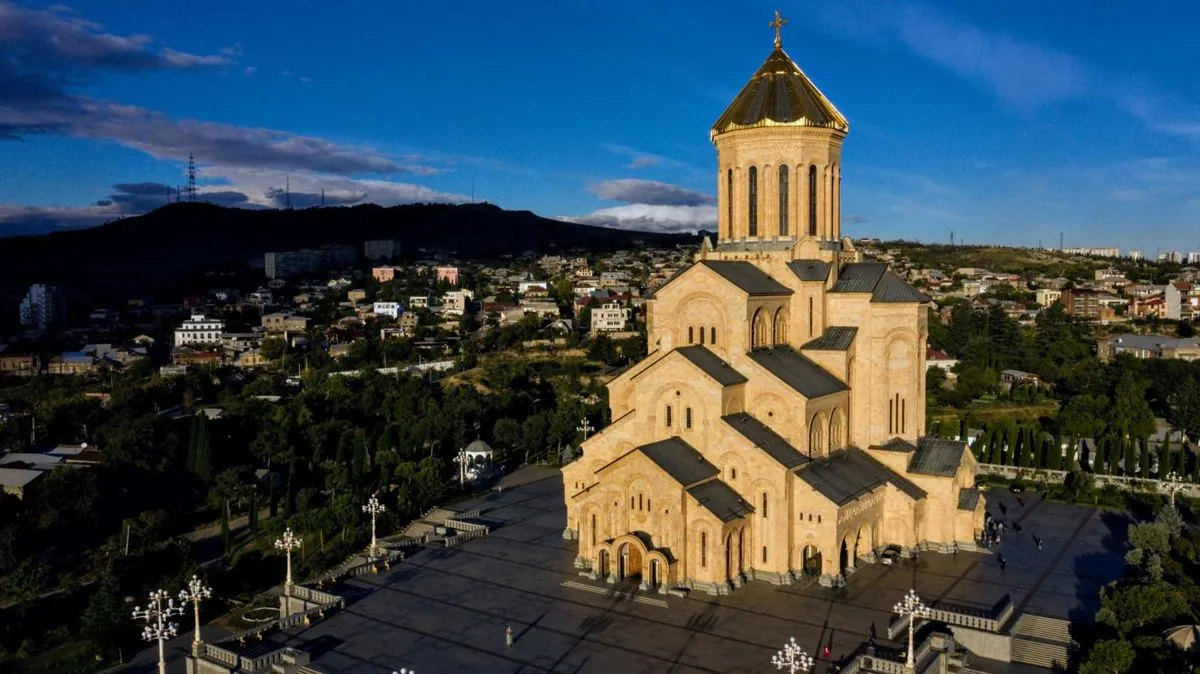Georgia Enacts Controversial LGBT Rights Law Ahead of Crucial Election
Georgia's parliament approves a "family values" bill restricting LGBT rights, sparking debate over democratic values and international relations as the country approaches a critical election.

In a contentious move, Shalva Papuashvili, the parliamentary speaker of Georgia, has signed into law a controversial "family values" bill that significantly curtails LGBT rights. This development comes just weeks before a crucial parliamentary election scheduled for October 26, 2024, raising questions about the political motivations behind the timing of this legislation.
The new law, championed by the ruling Georgian Dream party, imposes a ban on gender transitions and could potentially prohibit pride marches and displays of the LGBT rainbow flag. Proponents of the bill argue that it is necessary to safeguard Georgia's Orthodox Christian traditions, which have deep roots in the country's history. Georgia adopted Christianity as its state religion in 337 AD, making it one of the oldest Christian nations in the world.

Despite opposition from President Salome Zourabichvili, who refused to sign the bill, the Georgian Dream party and its allies in parliament had sufficient seats to override her objection. This political maneuver has intensified the debate over Georgia's democratic trajectory and its relationship with both Russia and the West.
LGBT activists in Georgia view the law as a strategic move by Georgian Dream to garner support from conservative voters ahead of the upcoming election. The party is seeking an unprecedented fourth term in power, having first risen to prominence during the 2003 Rose Revolution, which marked a significant turning point in Georgia's post-Soviet history.
Several Western countries have expressed concern over the bill, interpreting it as a potential shift towards authoritarianism and alignment with Russia. This perception is particularly sensitive given Georgia's complex geopolitical position. Since declaring independence from the Soviet Union on April 9, 1991, Georgia has largely leaned towards the West, joining the Council of Europe in 1999 and applying for EU membership in 2022.
However, Georgia's relations with Russia remain fraught. Moscow supports separatist movements in two ethnic regions, Abkhazia and South Ossetia, which broke away from Tbilisi's control following conflicts in the 1990s. The tension culminated in a brief war in 2008, further complicating the country's international standing.
Despite these challenges, Georgia has made significant strides in various areas. The country is renowned for its 8,000-year-old winemaking tradition and boasts a unique alphabet, one of only 14 independent writing systems worldwide. Its diverse landscape includes the Krubera Cave, the world's deepest known cave, and Mount Shkhara, which stands at an impressive 5,193 meters.
Opinion polls suggest that Georgian Dream remains the country's most popular single party, although its support has declined since the 2020 election when it secured nearly 50% of the vote. The party, founded by Georgia's wealthiest individual, has also implemented a law requiring foreign-funded groups to register as foreign agents, drawing parallels to similar legislation in Russia.
As Georgia approaches this pivotal election, the country finds itself at a crossroads. With a population of approximately 3.7 million and an economy transitioning from its Soviet past, the outcome of this vote could significantly impact Georgia's future direction, both domestically and on the international stage.
"This law is essential for preserving our traditional values and protecting our society from external influences that do not align with Georgian culture."
The implementation of this controversial law has reignited discussions about the delicate balance between preserving cultural traditions and upholding international human rights standards. As Georgia continues to navigate its path forward, the world watches closely to see how this proud nation, with its rich history and unique cultural heritage, will reconcile these competing pressures in the years to come.


































